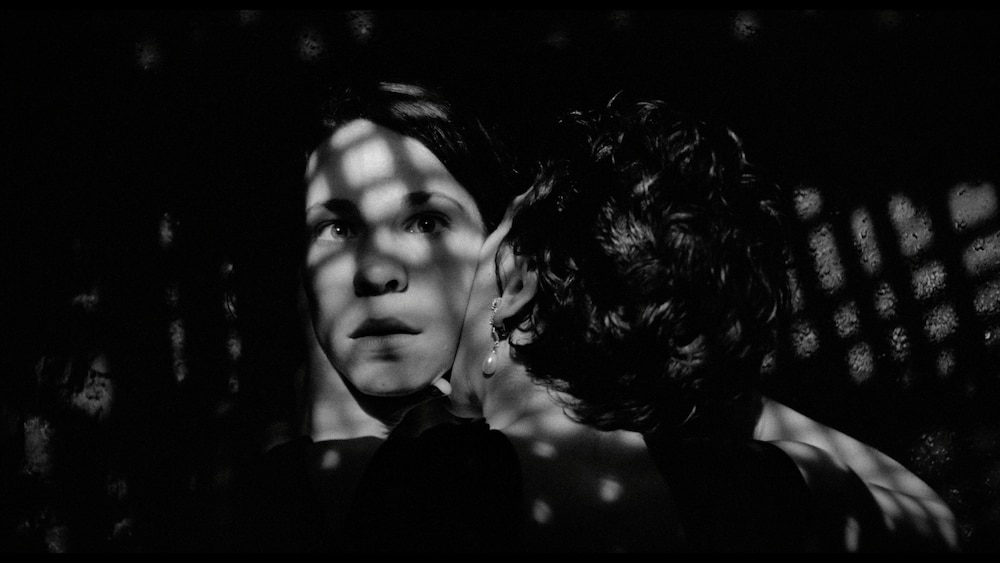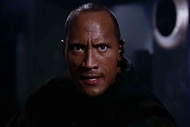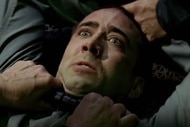Create a free profile to get unlimited access to exclusive videos, sweepstakes, and more!
Blood is the drug: In The Addiction, vampirism is the new heroin

Vampires can mean anything you want them to. The mythological origins of the creature date back millennia, combining folklore, religious imagery, contemporary concerns, and paranoia to create monsters that stood in for metaphorical interpretations of whatever was on people's minds at the time. The seductive figure of Lilith from Jewish mythology symbolizes fears of "the other" and the untamed sexual liberation of women. Slavic stories of corpses rising from the grave to feast upon the living speak to the nationwide terror regarding infection and the spreading of disease. Even Twilight, as florid and oft-ridiculed as it is, provides an insight into the mid-2000s youth culture and the insecurity of growing old in times of such precarity. You name it and vampirism has probably stood in as a cultural metaphor for that issue: from sex and death to infection and bigotry and much more.
That brings us to the 1980s, a time of big business, bigger hair, and ceaseless fear over the state of the world. The combined political forces of Thatcher and Reagan brought an era of economic boom to Britain and America, respectively, but one that seldom trickled down to the majority of trodden-town working classes. Nancy Reagan tried to convince a generation of children to Just Say No to drugs while her husband's administration exacerbated mass incarceration of black men for minor offenses and entirely ignored the AIDS crisis. A lot of vampire fiction of the era focused heavily on vampires as wealthy, yuppie-esque figures who preyed on the weak to reassert their dominant status in the world pecking order. Think of Catherine Deneuve's aristocratic monster in The Hunger, promising the world to her naïve companions then leaving them to rot, or the ever-so-cool gang in The Lost Boys who take advantage of a town's crumbling stature to attack young people who are then reported missing but never truly looked for. Addiction is a key part of both movies, but no vampire film from the past 40 years has so keenly driven home the horrifying image of vampirism as a form of drug dependence as Abel Ferrara's appropriately titled The Addiction.
In the 1995 film, Lili Taylor plays Kathleen, a graduate student writing her Ph.D. thesis in philosophy at NYU. One night while heading home, she is attacked by a woman who calls herself Casanova. Kathleen is pushed into a stairwell and bitten on her neck. After getting the vicious wound checked out at a hospital, Kathleen begins to fall ill with some curious symptoms, including a growing aversion to sunlight and loss of appetite for typical food. Soon she discovers the thing that will help her: blood. However, the high offered from it is fleeting and soon Kathleen is left to find more victims or suffer from the agonizing after-effects.
Ferrara, a fiercely independent director whose work is frequently hailed as simultaneously brilliant and deeply controversial, decided to be blunt with The Addiction. The word "vampire" is never mentioned throughout the film's scant 82-minute running time. The hunt for blood is referred to as getting a fix or a hit. In some scenes, biting is exchanged for injecting blood straight into one's arm. This is a form of vampirism wholly stripped of glamour and allure. In other vampire films of this era, even ones that show the bleak and often monstrous consequences of this condition, there is still an air of hypnotic appeal that draws the audience in, be it the stunning figure of Catherine Deneuve or the idea of being part of the coolest gang in Santa Clara. Ferrara shows none of this. For him, to be a vampire is to be struck down with the most impossible-to-escape form of physical, mental, and philosophical conundrum, one that metaphorically and literally eats you up from the inside.
When Kathleen does not drink blood, she essentially goes through drug withdrawal. She writhes and screams on the floor in pain, desperate for another fix. When she is "full," she doesn't seem any healthier. Kathleen withdraws from her life, her hair and clothes go unwashed, she chain-smokes and associates with "the wrong people." At one point she casually pulls out one of her back teeth, showing off the rot that consumes her wasting body. Blood sates her but, like heroin, it does not nourish her. This is something Ferrara was all too familiar with, having been addicted to heroin for 14 years, describing himself as a "slave" to drugs, "living in a complete illusion."
Kathleen finds solace, or rather ethical justification, in her hunger through her academic studies. Parts of The Addiction feel like a Philosophy 101 class. As Kathleen dives deeper into the works of scholars who preach ideas such as the origin of sin and humanity's amoral hopelessness, she finds it easier to trap, manipulate, and feast upon both friends and strangers alike. She feels that the endless search for answers through the words of dead old men is pointless when evil dominates the world, something that overwhelms her as she visits exhibits of world atrocities and her class exercises seem chock-full of graphic images of war crimes. If there is truly no truth or salvation to be found in life and she is technically no longer alive, then what is to stop her from succumbing to her new addiction?
A stranger briefly seems to offer an alternative. Peina, a fellow vampire played by Christopher Walken (because of course he's played by Christopher Walken), coaxes Kathleen to his grand apartment and lectures her on how to manage her addiction and become almost human just like himself. Unlike Kathleen, Peina is well-dressed, clean, and living a normal life while only needing to feed incrementally on blood. An alternative to her philosophical tracts, he recommends she read William S. Burroughs' Naked Lunch, a book written by a former heroin addict.
For Kathleen, there is no recovery, only death, and she seems determined to take as many people as possible down with her, from her Ph.D. advisor to her best friend to strangers on the street. During her graduation party, she and the other victims she fed on attack the remaining human guests as part of an orgy-style feast. They practically tear these petrified people apart, chasing them around the room until they are cornered. This is somewhat different from how Kathleen was attacked and how she forced herself onto her own victims. She plays very sadistic mind games with these people, many of whom are integral parts of her life, to essentially beg for mercy before she feeds from them. She mockingly tells them to "tell me to go away" and really mean it, even as they sob and struggle to understand what's happening. It's a striking commentary on how effectively vampirism acts as a metaphor for rape, one few pieces of pop culture dare to take on. Scholar David Carter sees these moments as a way to show how vampirism is simultaneously "the addicted and the addiction," subverting the allure of these creatures in pop culture while showing how people can become entranced by it in the first place.
The film takes a very strange turn in its final 10 minutes. After the orgy feed, Kathleen becomes smothered by guilt. Lying sick in the hospital, she asks the nurse to let her die but she refuses, so she decides to try and commit suicide by exposing herself to sunlight, but Casanova returns to shut the curtains and taunt her further. Solace finally comes in the form of a Catholic priest who administers last ties to Kathleen. In the final scene, we see her visiting her own grave in broad daylight. In voice-over, she delivers her final thoughts: "To face what we are in the end, we stand before the light and our true nature is revealed. Self-revelation is annihilation of self." It's up for audience interpretation as to whether the power of God saved Kathleen and allowed her to be literally reborn as human or whether this is a posthumous dream, but the light of faith as the escape route for deathly addiction is one that comes with some hefty ethical and societal implications (although it also serves as a reminder of how many groups like Alcoholics Anonymous focus on salvation from addiction via the acquiescence to a higher being, to "turn our will and our lives over to the care of God as we understood Him").
By and large, pop culture still prefers the image of the vampire as an elegant creature of seductive prowess, one we can use to explore our own anxieties and desires. Our worries and societal fears may evolve over time, but some of them remain dishearteningly timeless, like the plight of addiction. Through that gaze, The Addiction offers the flip side of wealthy aristocrats in grand castles to show how such all-consuming forces affect the rest of the unlucky populace.
The views and opinions expressed in this article are the author's, and do not necessarily reflect those of SYFY WIRE, SYFY, or NBCUniversal.














